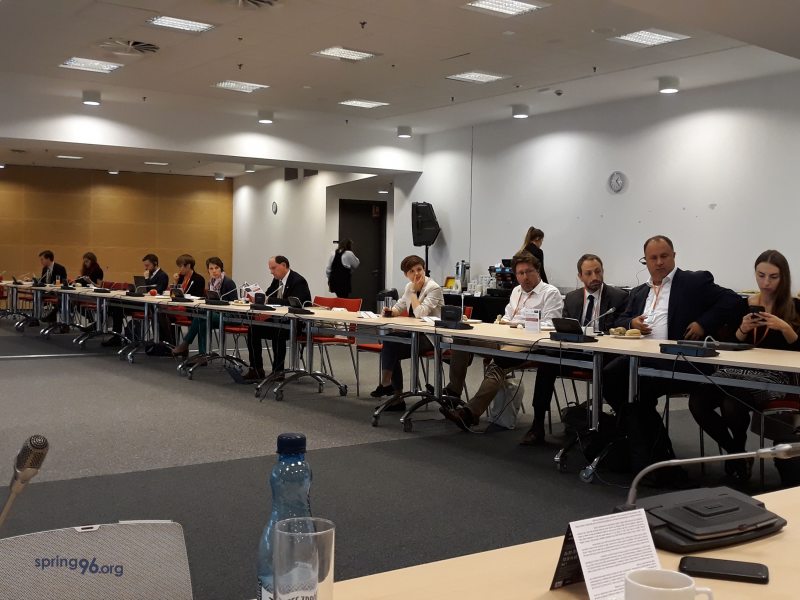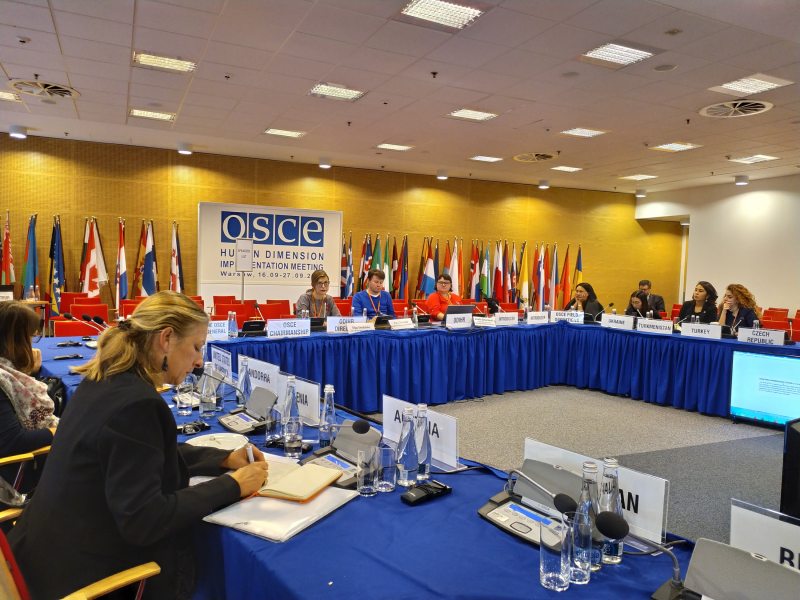OSCE HDIM 2019: Belarus in focus
The OSCE Human Dimension Implementation Meeting, Europe's largest annual human rights and democracy conference, is closing today in Warsaw, following two weeks of discussions that brought together hundreds of activists and policy-makers.
The annual forum agenda featured numerous side-events organized by human rights groups from the OSCE region.
Belarusian NGOs took part in two events that covered situation with human rights head of this year’s parliamentary elections in Belarus and discrimination of Roma in Belarus, Ukraine, and Russia.
The side-event “Violence against Roma (police operations, forced evictions, pogroms) in Russia, Belarus and Ukraine” was organized by the Russian Anti-Discrimination Center Memorial. The activists told about the problems Roma population is facing in Eastern Europe, characterizing it as “one of the most vulnerable groups at risk of violence and pogroms motivated by racism and intolerance.” The recent examples include the mass arrests of Roma men and women in Mahilioŭ in May 2019. To date, the perpetrators of this and other attacks have not been brought to justice, Roma-rights advocates say.

- Side-event “Violence against Roma (police operations, forced evictions, pogroms) in Russia, Belarus and Ukraine”
Pavel Sapelka, a representative of the Human Rights Center “Viasna”, highlighted the problem of police profiling of Roma people, including in the Mahilioŭ case, when nearly a dozen persons were arrested without a valid reason and held in detention in violation of procedural standards.
“A Roma woman saw men and women facing the wall. She said all the detainees were forced to undress to be searched. One bottle of water was given to 30 people. Police officers shouted and cursed. Women, she says, were released around 4 am, while the men remained in jail for another three days,” Sapelka said at the event.
Back in 2018, the UN Human Rights Committee recommended that Belarus “should take effective measures to address discrimination against Roma, to combat hate speech directed at them and to eliminate racial profiling by law enforcement officials, inter alia by providing mandatory training on addressing hate crimes and on the impermissibility of ethnic profiling.”
As yet, Belarus has no anti-discrimination legislation. As a result, with no legal tools to combat discrimination, the perpetrators still enjoy impunity in discrimination-related cases.
The event entitled “Civil Society and Human Rights in Belarus on the Eve of Parliamentary Elections” was organized by the Assembly of Pro-Democratic NGOs of Belarus.
The Assembly’s expert Yury Chavusau spoke about the general context of the parliamentary elections. He recalled that many of the recommendations by the OSCE ODIHR and Belarusian human rights activists were not taken into account.

- Side-event “Civil Society and Human Rights in Belarus on the Eve of Parliamentary Elections”. Warsaw. September 26, 2019. Photo: Siarzhuk Semianiuk
The Human Rights Center “Viasna” was represented by Natallia Satsunkevich, a long-term observer of the campaign “Human Rights Defenders for Free Elections.” The activist told about the results of the first two stages of the elections: the formation of district and territorial election commissions and the registration of nomination groups. She also elaborated on the pickets held to support the nomination of candidates and the discriminative approach of election commissions toward opposition groups.
Volha Smalianka, director of the Legal Transformation Center Lawtrend, gave an overview of the situation of freedom of association in Belarus, in particular, the changes in the legislation concerning the activities of non-profit organizations.

















